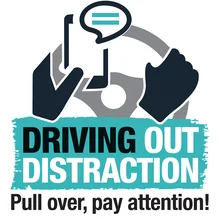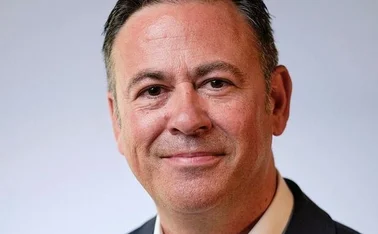
Driving Out Distraction: The impact of mental state on driving

There can be many distractions when driving a car but Jo McGowan, human resources director at First Central Insurance & Technology Group, asks what happens when these are inside your own head?
Post’s Driving Out Distraction campaign highlights how seemingly innocent everyday actions can have devastating effects. But there are also a plethora of invisible distractions that we all carry with us every day.
Despite an undeniable increase in conversations surrounding mental health, we are not yet thinking about it as something that every one of us has. For example, while anxiety can be a debilitating condition for some, others might experience feelings of anxiety that come and go as a function of everyday activity – simply getting sweaty palms or moderate feelings of nausea.
We’ve all had car journeys where we couldn’t wait to get to our destination due to heavy traffic and perhaps even experienced road rage. In this case, feelings of anxiety can be a significant distraction on the road. Our research has found that not only have 42% of motorists had feelings of anxiety while driving, but nearly one-third of motorists have had a near miss due to feeling anxious while in the car.
Business owner and mum Nicola Ward was so anxious about driving she catastrophised the worst outcomes when in the car. Violinist and author Izzy Judd has also experienced anxiousness while in her vehicle ever since her brother suffered a severe head injury due to a car accident.
Given the prevalence of these issues, First Central Insurance & Technology Group has been working with the mental health charity Sane to develop top tips for how drivers can prepare themselves mentally for a journey, and how they can moderate feelings of anxiety on the road. For example, before a journey, drivers should ask themselves whether it’s worth making the trip and while on the road, drivers can pull over and stop at the earliest opportunity should they become overwhelmed with feelings of anxiousness.
The impact of anxious feelings on distracted driving needs to be part of the broader conversation of mental health in the workplace. If these conversations are to become normalised in society, we should be considering its application in all settings. The insurance industry as a whole is beginning to get to grips with the importance of mental health hygiene – understanding the impact of a high-pressure industry on a worker and the need to provide mental health skills and support to employees should they need them.
A number of firms and institutions such as the Chartered Insurance Institute have signed up to charters pledging to prioritise mental health and the wellbeing of employees and insurers are signing up to training such as Mental Health First Aid to help their employees with mental health literacy.
In the future, discussing mental state will be as normal as chatting about your plans for the weekend. Insurers have a unique opportunity to facilitate discussion of the topic not only in their offices, but in the real-life contexts where consumers take out our policies as a safety net. Doing so not only facilitates discussion of an important social issue but keeps drivers safe by reducing distraction on the road.

Join the campaign
Want to do something to help and support Post’s Driving out Distraction campaign? Sign up as a supporter and spread the word that you are doing your bit by committing not to use your phone while driving using #DrivingOutDistraction and #PayAttentionPullOver or get your firm to commit to our pledge to stop mobile phone use in company cars.
Only users who have a paid subscription or are part of a corporate subscription are able to print or copy content.
To access these options, along with all other subscription benefits, please contact info@postonline.co.uk or view our subscription options here: https://subscriptions.postonline.co.uk/subscribe
You are currently unable to print this content. Please contact info@postonline.co.uk to find out more.
You are currently unable to copy this content. Please contact info@postonline.co.uk to find out more.
Copyright Infopro Digital Limited. All rights reserved.
As outlined in our terms and conditions, https://www.infopro-digital.com/terms-and-conditions/subscriptions/ (point 2.4), printing is limited to a single copy.
If you would like to purchase additional rights please email info@postonline.co.uk
Copyright Infopro Digital Limited. All rights reserved.
You may share this content using our article tools. As outlined in our terms and conditions, https://www.infopro-digital.com/terms-and-conditions/subscriptions/ (clause 2.4), an Authorised User may only make one copy of the materials for their own personal use. You must also comply with the restrictions in clause 2.5.
If you would like to purchase additional rights please email info@postonline.co.uk








